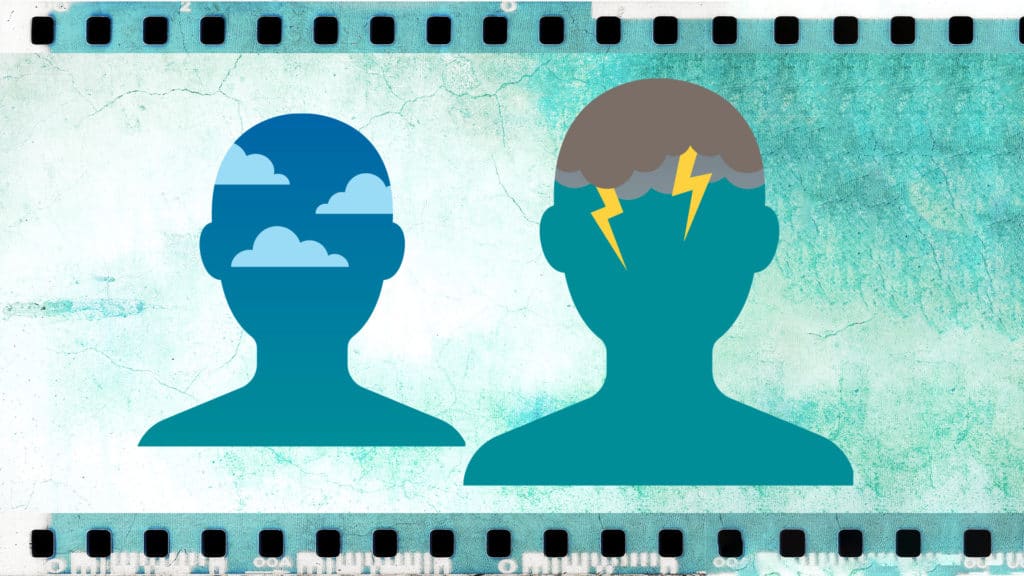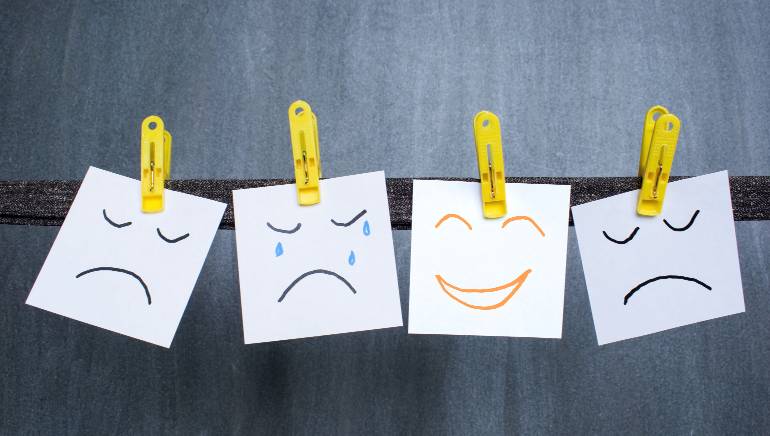Pessimism is a complex and multi-layered construct that has been extensively studied by researchers over the years. In this blog post, we will explore what pessimism is, its various forms and causes, the risks associated with it, as well as ways to combat it.
We will also hear from experts in the field about their views on pessimism and how best to deal with it. So, if you are interested in learning more about pessimism – its concept, evaluation, and tips – then keep reading!
Contents
Understanding Pessimism

Pessimism is a state of mind characterized by negative thoughts and expectations about the future. Pessimistic individuals tend to see the glass as always being half empty and believe that bad things will happen more often than good things. Pessimists often have a negative outlook on life, view themselves and the world in a negative light, and feel discouraged and unhappy most of the time.
Types of Pessimism
There are three main types of pessimism:
- Descriptive pessimism: This is when people believe that bad things are more likely to happen than good things.
- Normative pessimism: This is when people think that it is morally wrong to be optimistic and that it is better to be pessimistic.
- Realistic pessimism: This is when people believe that bad things are more likely to happen, but they also understand that there is a chance for good things to happen as well.
Causes of Pessimism
There can be many different causes of pessimism, some of which are:
- Past experiences: People who have experienced a lot of pain and suffering in their lives are more likely to be pessimistic.
- Negative thinking patterns: If someone has a habit of focusing on the negative, they are more likely to be pessimistic.
- Anxiety and depression: These mental health conditions can lead to pessimism.
- Low self-esteem: People who have low self-esteem are more likely to be pessimistic.
- Poor social support: If someone doesn’t have a lot of supportive people in their life, they are more likely to be pessimistic.
Risk Factors of Pessimism
There are a few risk factors that increase the chances of someone becoming a pessimist. They are:
- Gender: Women are more likely to be pessimistic than men.
- Age: Older adults are more likely to be pessimistic than young adults.
- Personality type: People who are neurotic or have low self-esteem are more likely to be pessimistic.
Living With Pessimism

Pessimism can harm all aspects of a person’s life. Some of the areas that may be affected are:
Impact On Life
- Personal life: Pessimistic People often have low self-esteem and don’t enjoy life as much as others. They are also less likely to have close relationships and tend to be loners.
- Professional life: Pessimists are less likely to be successful in their careers, as they are more likely to give up easily and have a negative outlook on things.
- Social life: Pessimistic People often have a hard time making friends and maintaining relationships. They also tend to be secluded and isolate themselves from others.
Impact On Health
Pessimism can also harm someone’s physical health. Pessimistic people are more likely to suffer from stress, anxiety, and depression, which can lead to various health problems.
- Mental health: As mentioned earlier, pessimism can lead to mental health problems such as anxiety and depression. These conditions can harm someone’s overall well-being.
- Emotional health: Pessimism can also lead to negative emotions such as sadness, anger, and frustration. These emotions can harm someone’s emotional health.
- Social health: Pessimism can also harm someone’s social health. Pessimistic people often have a hard time making friends and maintaining relationships. They also tend to be secluded and isolate themselves from others.
Evaluating Pessimism

There are both upsides and downsides to being a pessimist.
- The main upside is that pessimists are more realistic and they usually expect the worst from people and situations. This means that they are less likely to be disappointed when things don’t go their way.
- The downside to being a pessimist is that it can lead to a lot of negative emotions such as sadness, anger, and frustration. It can also lead to mental health problems such as anxiety and depression.
Realism, the thin line b/w pessimism, and optimism
People who are realistic are often seen as pessimists because they don’t sugarcoat the facts, but in many cases, realism is just a more accurate way of looking at the world. People who are optimistic tend to see the good in every situation, while people who are pessimistic see only the bad.
In some cases, being a pessimist can have some benefits. For example, pessimists are more likely to plan for the worst-case scenario, which can make them better prepared for difficult situations. Pessimists are also less likely to be taken by surprise when bad things happen.
However, there are also many downsides to being a pessimist. For example, pessimists are more likely to experience depression and anxiety, and they may have a harder time enjoying life. Additionally, pessimism can be damaging to relationships and can even lead to social isolation.
So, what’s the verdict
Is pessimism good or bad? The answer is that it depends on the individual. Some people may find that being a pessimist has benefits, while others may find that it has negative consequences. The best way to find out is to experiment and see what works best for you.
Combating Pessimism

There are a few things that someone can do to combat their pessimism:
Self-help Tips
If you are struggling with a pessimistic attitude, the following self-help tips may be useful:
- Challenge your negative thoughts. When you find yourself thinking negatively, ask yourself whether there is any evidence to support your thoughts. Are you jumping to conclusions? Are you catastrophizing?
- Challenge your beliefs about yourself and the world. Do you believe that things will always go wrong for you? People are inherently selfish and untrustworthy? That the future is always bleak? Challenge these beliefs and see if they hold up to scrutiny.
- Stay active and socialize. Spending time with friends and family can help to brighten your outlook on life. Being active and socializing also has many other benefits, such as improving mental health and reducing stress levels.
- Focus on the positives. It can be helpful to make a list of things you’re grateful for, even when times are tough. Write down five good things that happened today, or in the past week. When you focus on the positives, it can help put your pessimism into perspective.
- Seek professional help. If you find that your pessimism is negatively impacting your life, it may be helpful to seek professional help. A therapist can assist you in exploring the root causes of your pessimism and developing strategies for managing it.
Self-help Tools
There are also a few self-help tools that can be useful for people who are struggling with a pessimistic attitude:
- Meditation: Meditation is another mindfulness practice that can help manage pessimism. It helps to promote a sense of calm and peace.
- Mindfulness: Mindfulness involves paying attention to the present moment, without judgment. It can be helpful for people who tend to focus on the negative aspects of life.
- Journaling: Journaling can be a great way to express your thoughts and feelings. It can also help you to track your progress in overcoming pessimism.
- Therapy: If you find that your pessimism is negatively impacting your life, it may be helpful to seek professional help. A therapist can assist you in exploring the root causes of your pessimism and developing strategies for managing it.
Self-help Techniques
If you are looking for additional self-help techniques, here are a few that may be useful:
- Talk to a friend or family member. Talking to someone who understands what you’re going through can be helpful.
- Join a support group. There are many online and in-person support groups for people with pessimism.
- Get professional help. If you find that your pessimism is negatively impacting your life, it may be time to seek professional help. A therapist can assist you in exploring the root causes of your pessimism and developing strategies for managing it.
Talking To a Professional

If you are finding that your pessimistic attitude is negatively impacting your life, it might be time to talk to a professional. Many professionals can help you manage your pessimistic attitude, including therapists, counselors, and psychologists. It’s important to find the right professional for you and to discuss your goals for treatment. Some of the treatment options are as follows:
- Psychotherapy: Psychotherapy is a type of therapy that can be used to treat pessimism. It involves working with a therapist to explore the root causes of your pessimism and develop strategies for managing it.
- Counseling: Counseling is another type of therapy that can be helpful for people who struggle with pessimism. Counselors offer guidance and support as you work through your pessimism. They can also provide resources and referrals for additional treatment.
- Medication: If you find that your pessimism is negatively impacting your life, your doctor may recommend medication. Several medications can be used to treat pessimism, including antidepressants and mood stabilizers.
Therapies
Many therapies can be used to help manage pessimism. Some of the most common therapies include cognitive-behavioral therapy (CBT), dialectical behavior therapy (DBT), and mindfulness-based cognitive therapy (MBCT). Each of these therapies focuses on different aspects of pessimism and offers different tools and techniques for managing it.
- Cognitive-Behavioral Therapy (CBT): Cognitive-behavioral therapy is a type of therapy that focuses on the relationship between thoughts, emotions, and behaviors. It can be useful for people who struggle with pessimism, as it helps to identify and change negative beliefs and thought patterns.
- Dialectical Behavior Therapy (DBT): Dialectical behavior therapy is a type of therapy that was developed specifically for people with Borderline Personality Disorder. However, it can be helpful for people who struggle with pessimism, as it focuses on helping people to manage their emotions and tolerate distress.
- Mindfulness-Based Cognitive Therapy (MBCT): Mindfulness-based cognitive therapy is a type of therapy that combines mindfulness meditation with cognitive therapy. It can be helpful for people who struggle with pessimism, as it helps to focus on the present moment and accept negative thoughts and feelings.
NOTE: There is no one “right” way to deal with pessimism. Because what works for one person may not work for another. So if you are struggling with a pessimistic attitude, it is important to find what works best for you and stick with it.
Case Study
Sarah is a 28-year-old woman who has struggled with her pessimistic attitude since she was a child. Ever since she has been a negative thinker and tends to see the worst in every situation. Thus, her pessimistic attitude has caused her to isolate herself from others. And she often feels down and overwhelmed.
Finally, Sarah decided to seek treatment for her pessimism and started attending weekly therapy sessions. Her therapist helped her to identify the root causes of her pessimism and develop strategies for managing it. In addition, Sarah was given homework assignments. Such as journaling and mindfulness exercises, to help her practice her new skills.
After a few months of treatment, Sarah began to see a change in her thinking. Furthermore, she was able to start interacting with others more. Subsequently, she began to feel happier and more positive. However, her therapist continued to work with her for another six months. And she is now able to manage her pessimistic attitude on her own.
Hearing From Experts

There is a lot of information out there on pessimism. And it can be helpful to hear from experts on the topic. Here are a few articles and videos that might be useful:
- “What Is Pessimism?” by Heidi Grant Halvorson
- “The Upsides of Being a Pessimist” by Drake Baer
- “How to Overcome Pessimism and Other Negative Thoughts” by Mary J. Hart, Ph.D.
Brain Activity
There is some evidence that suggests that there is a link between pessimism and brain activity. A study that was conducted by researchers at the University of Pennsylvania found that pessimistic people tend to have less activity in the areas of the brain associated with happiness and positive emotions. Moreover, some of the key findings are:
- Pessimism is associated with increased activity in the amygdala, which is responsible for fear and anxiety.
- Pessimism is also associated with decreased activity in the prefrontal cortex, which is responsible for executive functions such as problem-solving and decision making.
- The combination of increased amygdala activity and decreased prefrontal cortex activity may be responsible for the negative thinking patterns associated with pessimism.
Resources
There is a lot of research on pessimism, and many experts have written about it. If you would like to learn more about pessimism, here are some resources that you can check out:
Books
- The Pessimist’s Guide to Life by Julie Tilsner
- The Power of Negative Thinking by Dr. Martin Seligman
- The Up Side of Down by Catherine Price
If you would like more information on pessimism, here are some resources that may be helpful:
- National Institute of Mental Health: “Pessimism.”
Conclusion
Although pessimism can be a difficult trait to manage, it is possible to live a fulfilling life with it. By understanding pessimism and using the appropriate self-help techniques; you can manage your pessimistic attitude and improve your quality of life.
If you find that your pessimistic attitude is negatively impacting your life, it may be helpful to seek professional help. Since a therapist can assist you in exploring the root causes of your pessimistic attitude and developing strategies for managing it.
A Word From Therapy Mantra
Your mental health — Your psychological, emotional, and social well-being — has an impact on every aspect of your life. Positive mental health essentially allows you to effectively deal with life’s everyday challenges.
At TherapyMantra, we have a team of therapists who provide affordable online therapy to assist you with issues such as depression, anxiety, stress, workplace Issues, addiction, relationship, OCD, LGBTQ, and PTSD. You can book a free therapy or download our free Android or iOS app.


